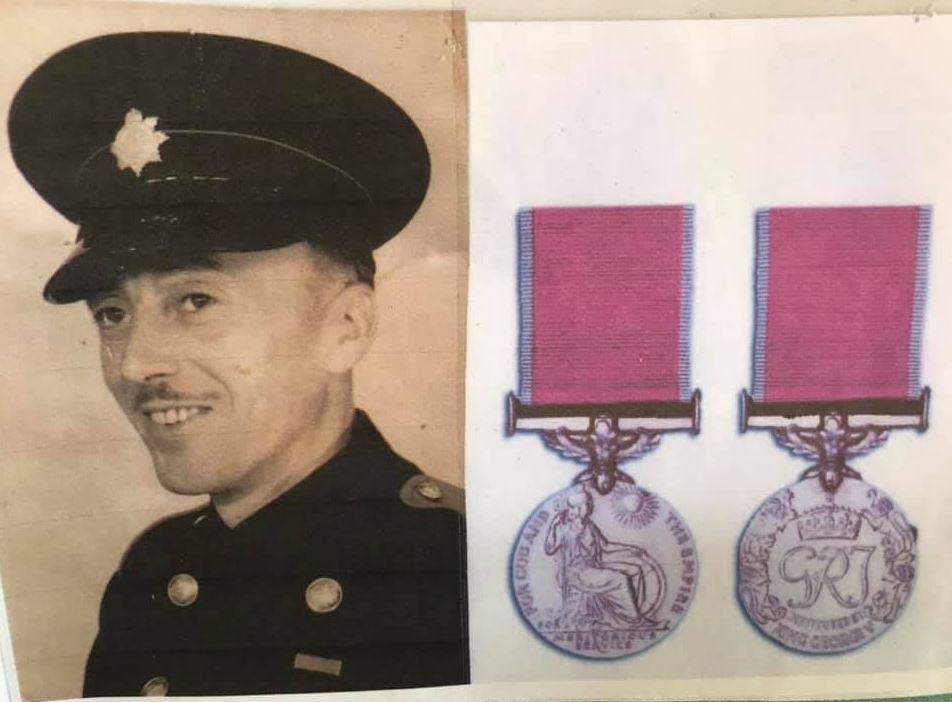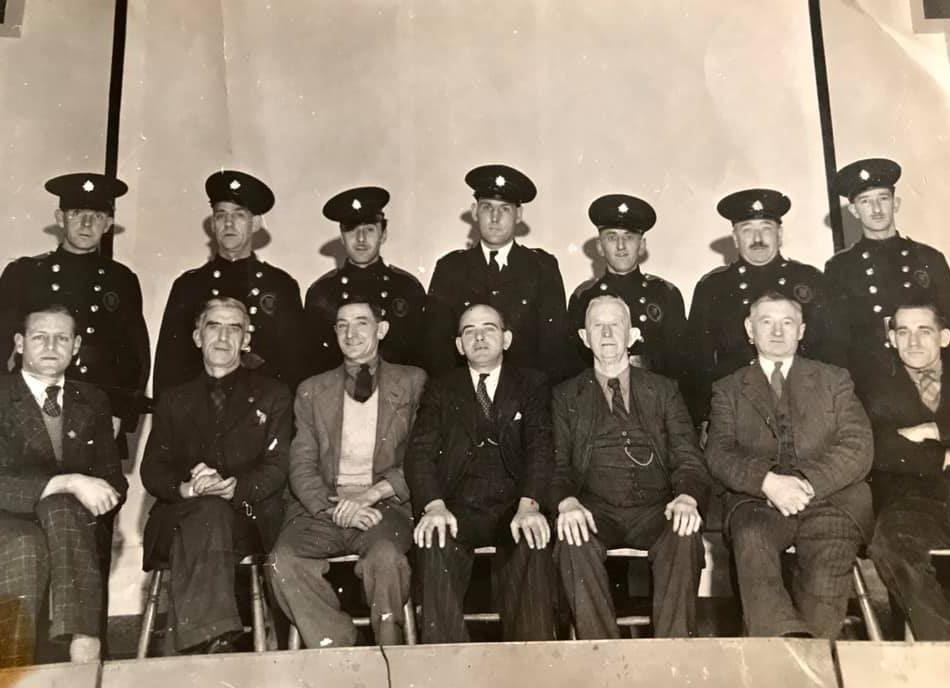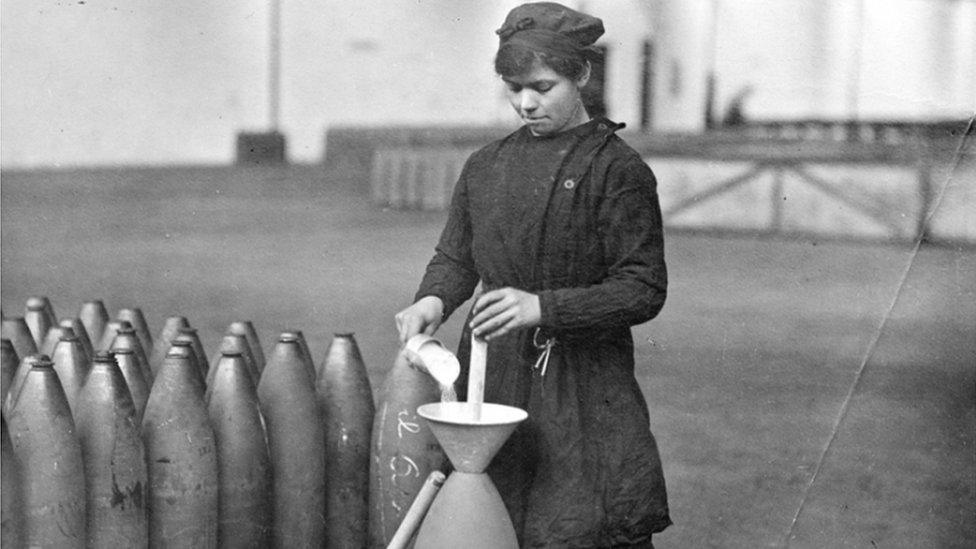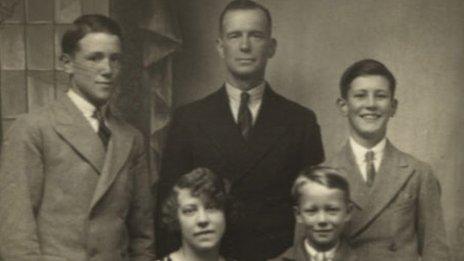Firefighters who stopped 'catastrophic' factory blast remembered
- Published

John Jenkins received a British Empire Medal for his bravery over the Rotherwas munitions blasts
It has been 75 years since firefighters risked their lives to protect a city during huge blasts at one of Europe's biggest munitions factory in WW2.
Naval bombs exploded as fires erupted at the Rotherwas site, in Hereford, on 30 May, 1944.
Dozens of firefighters fought for hours to stop millions of pounds worth of explosives from igniting.
A local historian described the explosion as "Hereford's big bang" which could have been "catastrophic".

The men who were part of the heroic Rotherwas factory blaze operation, which helped saved Hereford from destruction
Awards were given for gallantry, including five George medals and nine British Empire medals, to the firefighters who tackled the explosions.
The blasts started with a six-foot tall mine filled with 2,000 pounds of explosives in the packing shed.
Among those recognised was John Jenkins.
His son-in-law Brian Edwards said Mr Jenkins had told him "about standing hosing down the bomb, which was overheating".
"When it did go up, he was so close to it that the blast knocked him over and injured him."
Margaret Hornsby, whose father was one of the firefighters, added: "When the first shell went up I was stood on the front lawn.
"It went up in the air just like a mushroom and the whole of the factory went black.
"The front door was blew off and it came up against the sink in the kitchen and the glass in the front windows were blown in."

Thousands of women worked at the Rotherwas munitions factory during peak production in both world wars
Thirty-one bombs and mines exploded that night and could be heard more than 10 miles away, local historian Bill Laws said.
"This really was Hereford's big bang."
Rotherwas workers had been preparing bombs and shells for allied troops as D-Day approached.
As munitions started to smoulder, they used sand and water to stop them igniting, allowing 800 people to escape, before the factory fire brigade took over.
Flames shooting 2,000 feet in the air were reported and despite bombs going off around them, relatives of the firefighters said they refused to leave the site.
Without their efforts "it would have been catastrophic," Mr Laws said. "It was bad enough as it was."
Two men died and more than 20 were injured.
"We really need to mark these things," Mr Laws added.

Follow BBC West Midlands on Facebook, external, on Twitter, external, and sign up for local news updates direct to your phone, external.
- Published20 May 2017

- Published27 July 2012

- Published6 August 2017
